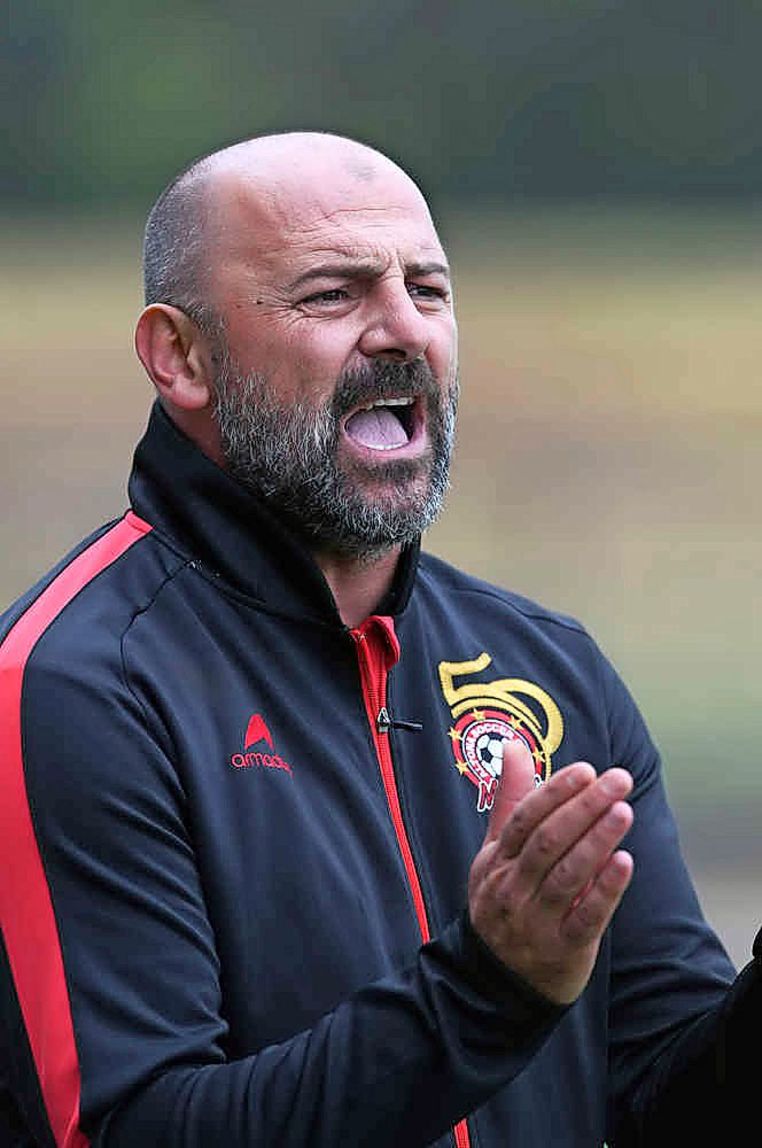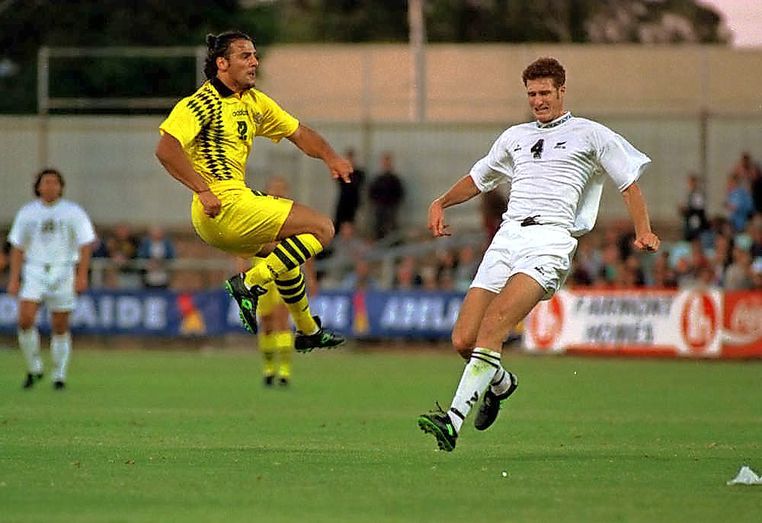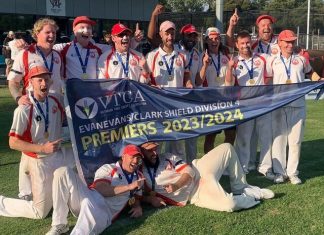A former Altona Magic youth player, Goran Lozanovski had a glittering career in the old National Soccer League, played as a professional overseas and even featured in the inaugural season of the A-League.
Now 44, he is back to where it all started, coaching the Altona Magic.
Lozanovski’s proudest memories as a player came after he rose through the Australia youth team ranks and became an Olyroo and Socceroo.
He played at the Summer Olympics and featured in national team games, including FIFA World Cup qualifiers.
“It was a great experience that I’ll cherish for the rest of my life,” Lozanovski said of his international career.
Lozanovski was involved in the Australian national team set-up from 1993 to 1998.
An attacking midfielder noted for his dead ball prowess, he was part of the Australian under 20s and graduated to the under 23s before getting his first cap as a Socceroo in 1996.
He spent three years as a Socceroo before injuries caught up with him.
Lozanovski went on to have a brilliant club career, winning consecutive national league titles with South Melbourne, including winning the Joe Marston Medal for player of the match in the 1998-99 grand final. He had a brief stint with Alemennia Aachen in Germany and a season with Adelaide United in the A-League.
His senior career started at Preston Makedonia in 1991 and he finished back at the same club 17 years later.
Lozanovski did it all as a player and has enjoyed the past decade coaching locally. He’s ticked all the boxes – except for playing in a FIFA World Cup.
He knows how hard it is for a nation to qualify for soccer’s showpiece event, so is full of admiration for the Socceroos who have made it.
This crop of Socceroos has not received the publicity or the adulation of the 2006, 2010 or 2014 teams, probably because of the drawn-out qualifying phase that ended with victory over Honduras in a two-leg qualifier back in November. There is also a sense that the Socceroos are in a transition phase and possibly making up the numbers.
That may be proven to be the case, but Lozanovski believes this team should be feted in the same way as the previous Australian teams that made it to the World Cups.
“It’s so hard to get there, it’s an achievement to get there,” he said. “We should be proud of that team.”
When Lozanovski played for the Socceroos, he did so as an Australian-based player.
Qualifying through Oceania was different to the Asian qualifying format today. The Socceroos would generally coast through the bulk of their matches against neighbouring nations and then meet the fifth-ranked South American team for a two-leg play-off to determine which nation goes to the World Cup.
The Australian-based players would have to make way for the returning European-based players for the pointy end of the qualifying campaigns, which was not ideal for team cohesion and frustrating for the players who featured in the lead-up matches, but Lozanovski said he was not complaining as he got the chance to play on the international stage.
“It was obviously a great experience to be a part of the Socceroo set-up and to be playing in tournaments and qualifiers,” he said.
Lozanovski reckons the best thing that happened to the Socceroos was joining the Asian Football Confederation, as it took the luck out of qualifying and gave Australia a chance if they were good enough.
Lozanovski is eagerly counting down the days until the World Cup kicks off in Russia – as is everybody in club land.
“Everyone at our club is getting excited about the World Cup,” he said.
“We’ll have a few World Cup nights and have a few games televised and the food and drinks going. We’re all looking forward to seeing Australia do well.”









